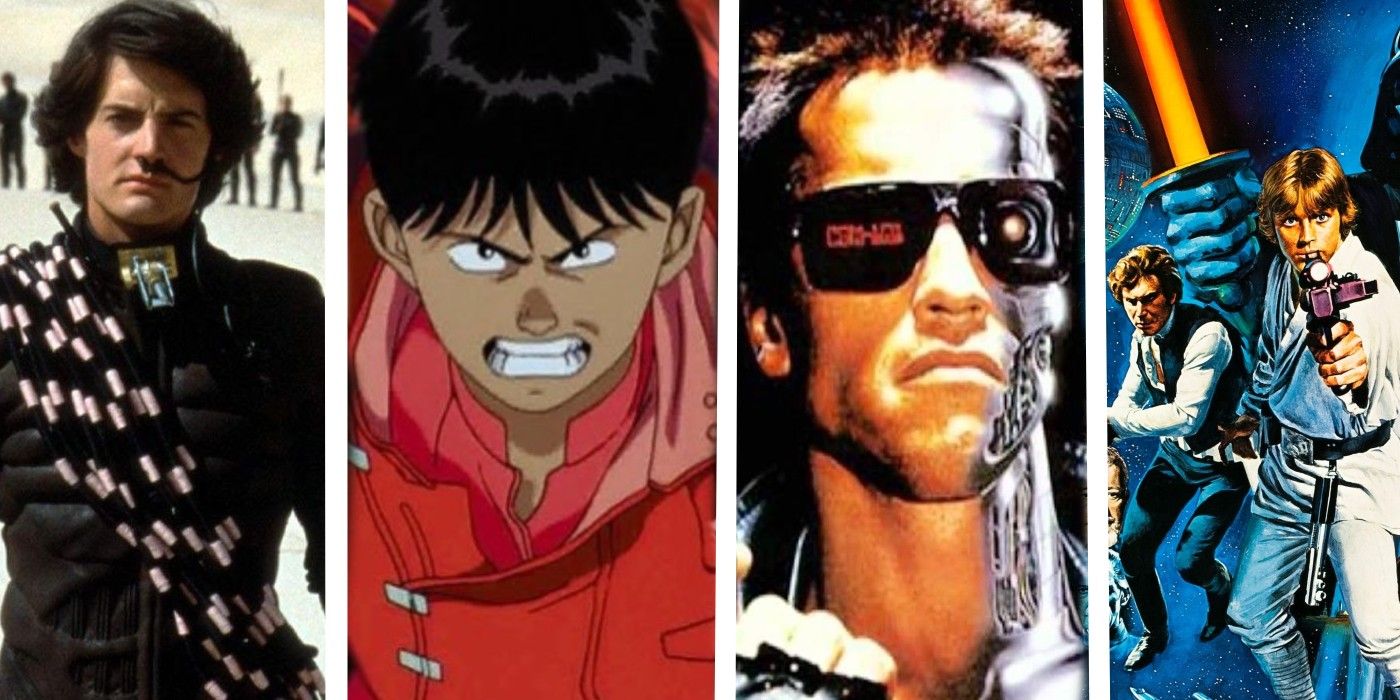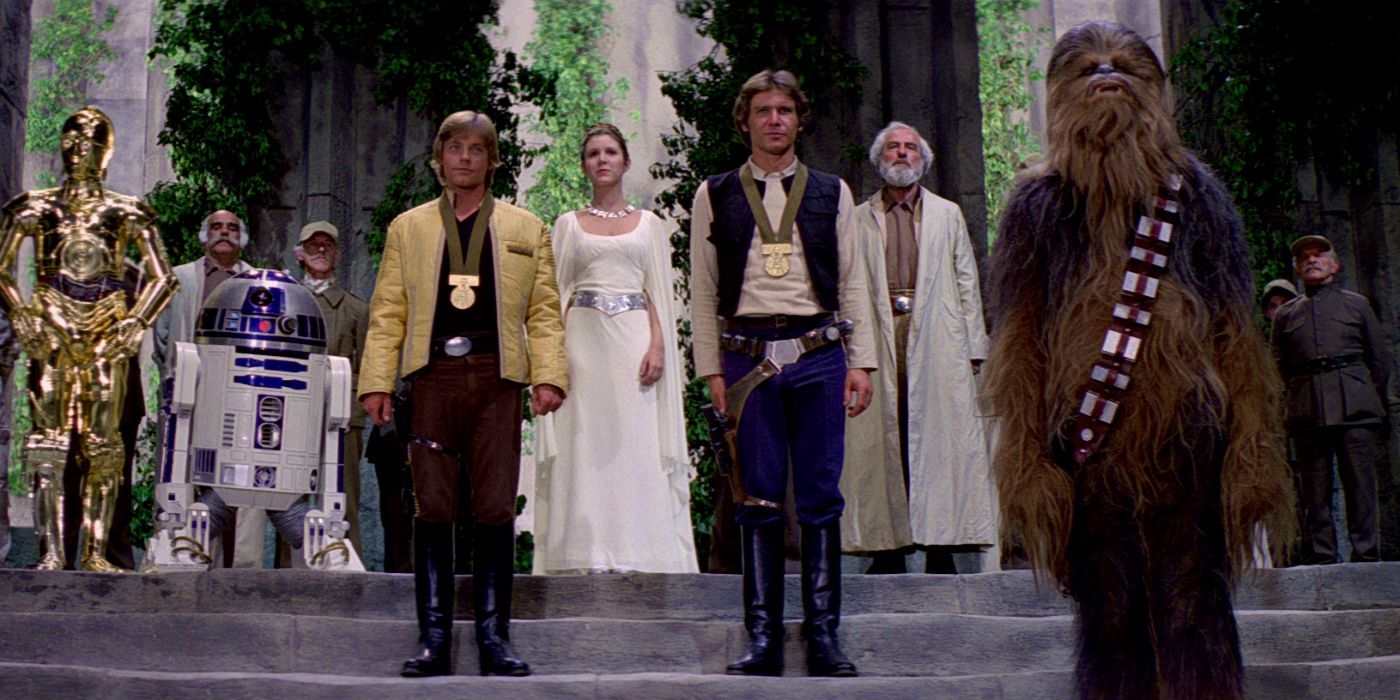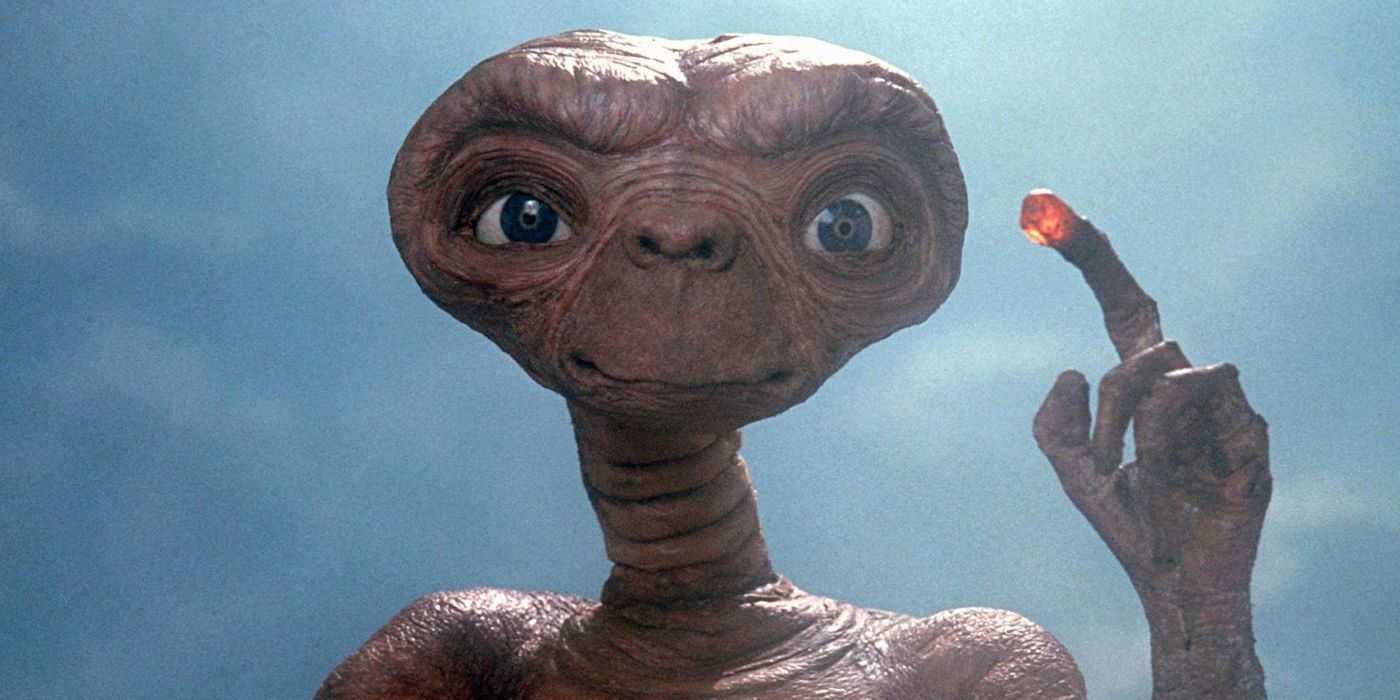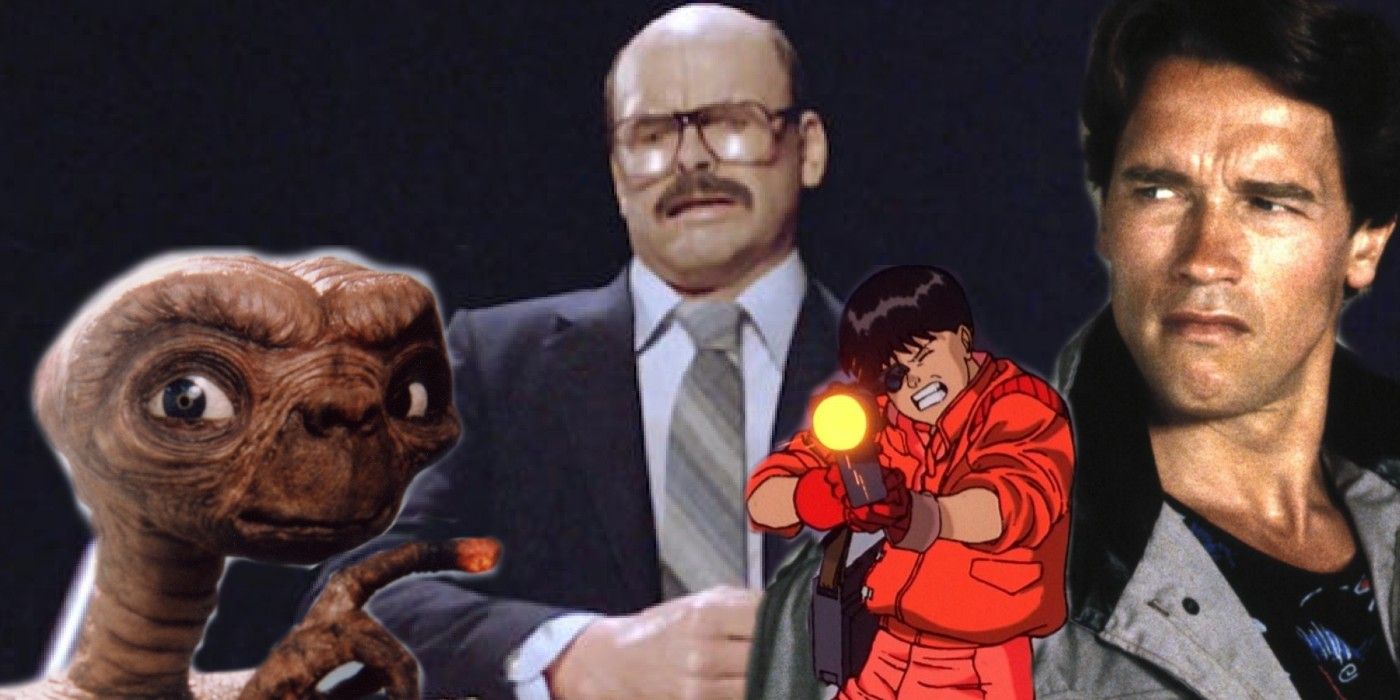
During the 1970s and 1980s, sci-fi films grew exponentially in popularity and quality, but one decade was far more successful and entertaining than the other. The genre is comprised of elements that include dystopias, technologically focused world-building, distant futures, extraterrestrials, and planetary exploration. As it progressed past the 1960s, directors of the 1970s and 1980s took influence from some of the largest titles such as Planet Of The Apes (1968) and 2001: A Space Odyssey (1968).
While the 1960s focused on the future of humans' power on Earth, 1970s sci-fi reinvigorated the genre with the addition of action-packed films like Star Wars (1977). Rather than fearing the vast universe, this decade embraced the mysticism of space and the beauty that exists light-years away. It focused on exploration and discovering the mysteries of the unknown. Furthermore, popular television series in the genre were made into films such as Star Trek: The Motion Picture (1979). Once the 1970s came to a close, the 1980s opened the floodgates for sci-fi franchises and films that feature humanoid robots, psychic energy, and friendly extraterrestrials.
Major studios such as Disney and Universal Studios noticed the growing popularity of the genre in the 1980s. As a result, throughout the decade, family-friendly sci-fi films that were enjoyed by both adults and children hit theaters. Well-known directors such as Steven Spielberg and James Cameron were perfecting their craft and produced some of the most iconic films of all time. A great portion of 1980s sci-fi films have origins in the 1970s, prompting the question, which decade was truly better than the other?

The core of 1970s sci-fi began with an infatuation with space exploration, and undoubtedly, the decade achieved iconic status with the premiere of George Lucas’ Star Wars, which spawned an unparalleled franchise that has stayed in the public consciousness for over 40 years. Furthermore, Ridley Scott’s Alien (1979) closed out the decade with iconic aesthetics that paved the way for 1980s stylized sci-fi cinematography and practical effects, and the first Star Trek film, heavily influenced by 2001: A Space Odyssey, began that franchise slowly.
A majority of the films produced during this period had a negative outlook on the future and frame it as a lawless battleground. Stanley's Kubrick's A Clockwork Orange (1971) adapted from Anthony Burgess’ 1962 novel, examines free will in a lawless society, and George Miller's original Mad Max (1979) joins THX 1138 (1971), A Boy and His Dog (1975), and Rollerball (1975) in the subgenre of dystopian futures in science fiction. Richard Fleischer’s 1973 film Soylent Green, set in 2022, outlines the fear of mass starvation due to over population and a climate catastrophe. As a result, Soylent Industries begins distributing an edible substance to the population, which is later revealed to be made of human corpses. The greater consensus of the 1970s sci-fi genre was that the future was bleak, war will wage, and climate catastrophes are inevitable.

Despite the 1970s' somewhat dark outlook on the future, 1980s sci-fi transformed space exploration into escapism as the Star Wars franchise continued in earnest and the Star Trek sequels took on their own identity, no longer attempting to imitate Kubrick's 1968 masterpiece. Steven Spielberg created the beloved film E.T. The Extra-Terrestrial in 1982; Spielberg was already an icon in the genre, but this film in particular highlighted his ability to open up the world of sci-fi for children of any age to enjoy.
Including a few disappointing but largely known films such as Dune (1984) and 2010 (1984), the 1980s included adult-oriented films as well. The decade introduced Aliens (1986), the first sequel to Ridley Scott’s iconic film as well as Scott's adaptation of Philip K. Dick’s 1968 novel Do Androids Dream Of Electric Sheep? titled Blade Runner (1982). James Cameron’s Terminator (1984) would launch a popular franchise, and David Cronenberg's Scanners (1981) and The Fly (1986) would influence sci-fi through the 1990s and early 2000s by introducing the promising cross-over potential that sci-fi could have with horror. While all of these films are iconic in their own right, nothing can quite compare to the critically acclaimed Japanese sci-fi action film Akira (1988). The 1980s showcased how multifaceted the genre could be. It could include unsettling dystopias, heartfelt extra-terrestrials, and make Arnold Schwarzenegger a sci-fi icon.

Ultimately, the 1980s is the best decade for sci-fi movies. By going beyond the traditional space setting or negative atmosphere of 1970s sci-fi, the 80s had impeccable range in aesthetics, plots, universes, and even introduced more elements of horror to create a new experience for audiences. While franchises familiar to the 1970s progressed into the 1980s, the latter perfected them and harnessed the originals to create an extraordinary franchise. For instance, the first Star Wars film is a beloved masterpiece, but time and time again its sequel, The Empire Strikes Back (1980) ranks much higher by both fans and critics.
By the 1980s, lines between genres that fell underneath the umbrella of sci-fi were beginning to blur and merge with one another. The genre became an amalgamation of science fiction, fantasy, superhero films, and horror. Regardless of whether or not franchises and directors emerged in the 1970s, they did not necessarily find their footing until the 1980s when sci-fi boomed and iconic characters were created. And the 1980s developed filmmaking technology; Disney released the first film to extensively use computer graphics with Tron (1982), and CGI graphics now dominate the sci-fi marketplace.
To this day, sci-fi is a largely successful genre with superhero films with genre-specific elements breaking records at box offices. The 1980s sci-fi films are referenced in popular culture and new media much more frequently than those of the 1970s. Furthermore, more of them are undergoing reboots and adaptations such as Denis Villeneuve's adaptation of Dune, which is scheduled to release in 2020. When modern filmmakers revisit sci-fi of the past, they turn to the 1980s, not the 1970s, making it the best decade for sci-fi movies.
from ScreenRant - Feed https://ift.tt/3ehZKay


0 Comments